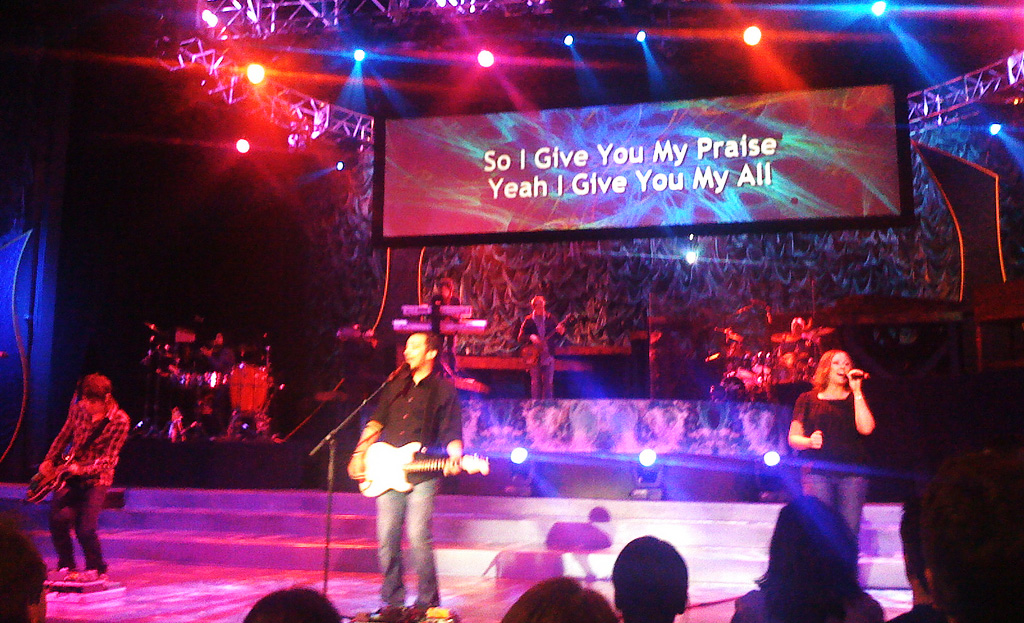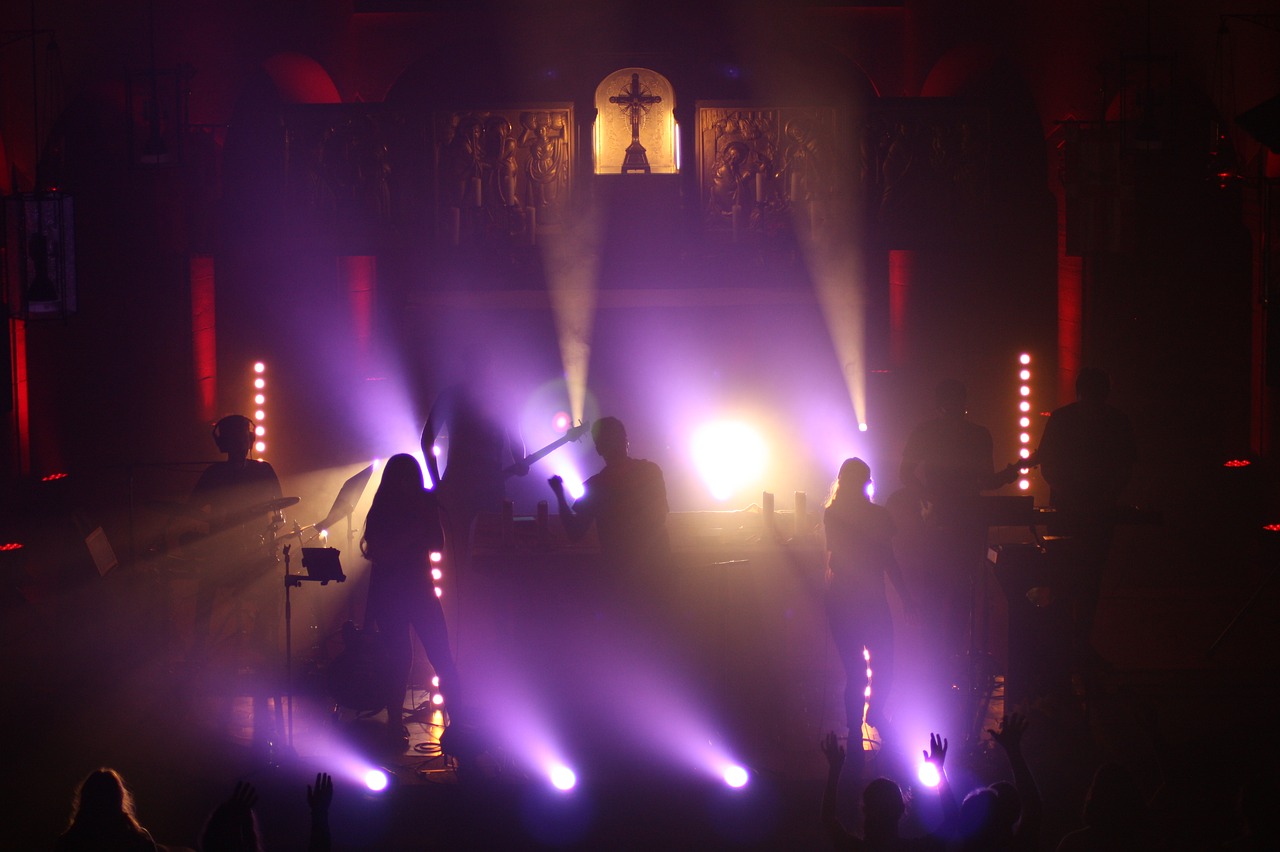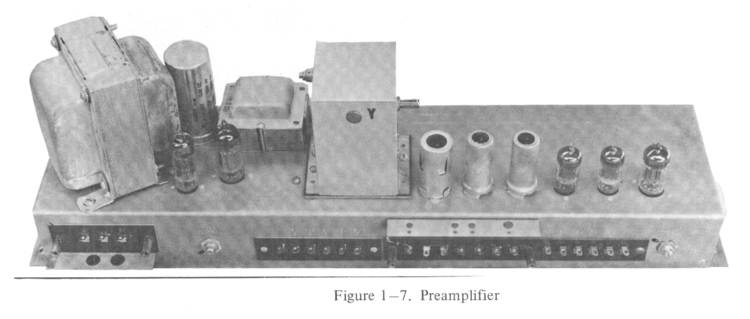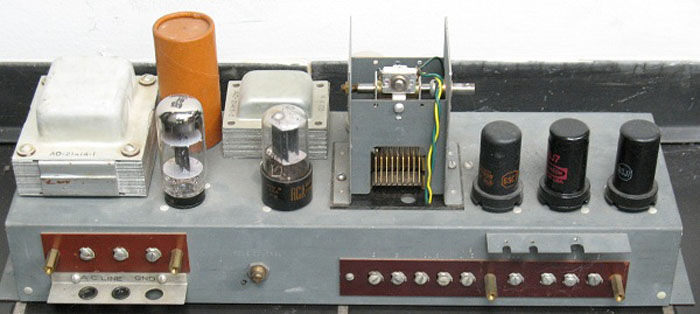Background
First of all I have over 30 years of experience playing in a band or group setting with other musicians. I have led Worship and currently play in a church Worship Team. In my business of repairing Organs and Digital Pianos I find myself in many churches having the opportunity to talk with many musicians and worship leaders almost daily. I have found that many experience the same problems we all face playing in or directing a Worship Team.
Before getting to miking instruments, I believe it’s important to revisit why we play in a Worship setting.
Purpose of Worship
We go to church to Praise God, to hear from God, hopefully meet with God, and to fellowship with other believers, all Biblical activities. Worshiping God in Church is both a privilege and a duty. The Worship Team is a tool to help people reach a point of worship through music. Since music has a way of cutting through the noise of everyday life, and speaking directly to our heart and soul, It’s a very effective tool.
Unlike playing in a popular band setting, playing in a Worship Team has quite a different purpose. Our music is used as a tool to help people enter into Worship and deliver the Worship message of the song. This doesn’t mean that there would be no place for a guitar lead or a musical interlude, but more often that not the message comes from the singing. The music is a foundation that delivers the message and creates the mood or atmosphere where worship can take place. It’s a wonderful challenge and satisfying beyond measure.
Worship Leader
A Worship Leader is crucial to guide and direct the Worship Team. A wonderful saying I have heard is that the Worship Leader is actually a Lead Worshipper! Just consider this list of requirements for the job:
- Musical ability,
- With the breadth to bring together classically-trained and pop/rock-inclined musicians;
- A pastor’s heart, to encourage and care for insecure artists;
- Leadership skills to envision, instruct and lead your group;
- The insight of a counsellor;
- Organizational skills, to prepare music and run rehearsals… the list is endless!
It sounds like a pretty tall order.
Why Play in a Worship Team
Playing in any venue with others can be very gratifying. The friendships, rehearsals, setting and reaching goals. Also the accountability lead a musician to grow and play better. Playing in a Worship Team has the added spiritual benefit. In fact, this is really the primary reason to play in Church. Sure it’s fun to play, but fun is a side benefit from the greater good of leading people to Worship. You should understand the deeper meaning of Ministering with music and the eternal consequences. The Worship Team leads the congregation to worship. In order to lead, to have to know where you’re going and it helps if you have been there already.
Typical Problems
Since the praise team works together to bring the congregation into a time and place of worship, it’s important for individual musicians to play as a team and not necessarily as individuals. Like a quality choir which has many parts, but almost sounds like one large voice. If as a musician, you play in such a way to cause someone to take their attention off of worship and turn it toward you, then you have crossed a line.
One problem is over-playing. This is where a musician is playing more than what the songs needs at any given moment. You may have heard it said that the spaces between the notes are just as important as the notes themselves. There is a lot of wisdom here. Any instrument can have this problem. The Bible says to play your instrument skillfully. Playing too loud is a very big problem. It becomes contagious causing others to compete for volume to be heard. One method of improving this is to try to setup all the amplifiers so each member can clearly hear each other. Also, listening to prerecorded music to get an idea of what the “mix” of a song sounds like.
Years ago in grade school I had an Epiphany of sorts. I was trying out for the third “King” position of the Three Kings for a Christmas play. During the audition, I sang with the other two “Kings” and I thought that in order for the teacher to hear me, I would have to sing loud. She went through the whole class. While I watched the others try out, I notice that they too were singing louder than the other two “Kings”. She said that we would have to do it again because she hadn’t made her choice yet. The second time I auditioned, I tried to blend with the other two singers. Well that was the ticket because I got the part. There are two primary things we do as musicians when we play together. First we play at the same speed or rhythm, and second, we balance our volume with each other.
The Big Problem
As sound systems get better with more power and channels, it’s natural to start putting the instruments into the sound system for better coverage. If the instruments are in the sound system, a problem with an instrument that is too low in volume can easily be turned up at the sound board. However, if an instrument is playing too loud on stage, the sound person can only turn it down from the board and it can still be too loud on stage. This is THE BIG PROBLEM!
Think about this because it’s very important. If an instrument is too loud, and the sound person turns it completely off at the sound board, and it’s still too loud, what can be done? This is the moment of truth that requires some soul searching. Many musicians tend to think their instrument can never be too loud. They say, well, I have to be able to hear it, or, I have to be able to feel it. Or, the ______ (insert some other instrument besides your own) is too loud and I can’t hear myself. Many musicians get away with this logic because the ones who think it’s too loud, such as church staff or church members, are usually not musicians themselves and this justifies the players belief those who suggest they are too loud don’t know music etc.
Who Likes It
As sound systems get more powerful, the ability to put instruments in the sound system opens a door for the sound person to have complete control over the sound. By removing the instrument amplifiers from the stage, and running it all through the mixer, one now has complete control. This makes the sound person happy, it makes the church staff happy, and it makes the congregation happy. But what about the musicians?
Who Doesn’t Like It
I personally don’t like the idea of my amplifiers/speakers being toted off stage and having to listen through a church monitor or headphones. Especially my Leslie Speaker! Why? (This is for the sound people reading this)
When I play music, I am one with my instrument. I play it though touch, and I feel it speak as it communicates with me. I hear it talk to me as I play. Weird huh? Well, not really. Playing music requires many hours of practice and learning your instrument. Everything about it becomes known and you exploit all its goods and bads to your musical advantage. If I play drums for example, I feel the vibrations come off the drum set. A piano vibrates through a musicians fingers. You notice that guitar players stand right in front of their amps. They need direct feedback from their equipment. Not to mention the exploitation of the amps tone.
However, the non-musicians in the church may simply be looking at the practical side of things. This is why it’s so important for the musicians to see that side too. Because, you may have your amp toted off stage while your in the restroom! If the praise team has good control of their stage volume, then there is no need to take amps off stage. Not only that, having good control of your volume means you can actually hear better. You can hear the monitors without them being turned up so loud that they feedback. You can hear the congregation singing! Believe me, playing at the right volume and connecting with the congregation is the best feeling. That’s what it’s all about.
How to Mic Off Stage
Now I realize there are some situations where you have to mic instruments off stage. Very large venues for example where the volumes can easily escalate. Or, where your church is on Radio or TV and the need for perfection of your sound is required. Let’s talk about the art of off stage miking.
If you’re miking instruments off stage, then the musicians will need a new way to hear their instrument. It could be floor monitors, earphones or headphones. Remember, the whole reason here is to lower stage volume so if you use monitors, your musicians may never feel they can get enough volume because the sound person is controlling it. With earphones or headphones, the musician can turn it up to their liming without being loud to anyone else.
This technique of placing instrument amplifiers off stage with a microphone is not easy and before attempting it, everyone involved should be made aware of the pros and cons and be in agreement. You wouldn’t want to spring this idea on unsuspecting musicians for example and risk someone leaving over it. Determine what amps are able to be placed off stage or even eliminated. Guitars and Bass can be miked off stage or even run directly into the system without any amps. The Organ however usually has a Leslie speaker that needs special attention. Drums and Piano cannot be put off stage unless they are electronic. Make sure that is included in the budget.
Once you know what can be remoted off stage, you have to decide where to put the amps. They need to be isolated from the stage sound wise, but access is still required. Also, they should be somewhat isolated from each other. You wouldn’t want say the lead guitar sound getting into the acoustic guitar mic etc. If the amps are eliminated the Musicians can bring in effects on stage that plug directly into the system. With all the amplifier modeling effects available today, this is much easier to do.
The Leslie Speaker
The Leslie Speaker has sound that comes off all sides with the treble near the top while the bass is near the bottom. This means at least two mics are required. One at the top and one at the bottom. Understand that this is minimal and will not sound as good as a Leslie does in person. To improve this, stereo miking can be done. This requires four mics. The church may not feel it possible to allocate four channels for just the organ. Still, this is how the pros do it. Microphones should be selected for their specific purpose. The standard instrument mic of the ages is the Shure SM 57. Works well on guitar amps and the top of the Leslie speaker. For the bass end, you should select a large diaphrame mic like those used on kick drums. Keep in mind that the monitor must be able to reproduce this frequency for it to be heard.
This is not a perfect solution by any means. A non-attendant sound person who attention you cannot get can drive a musician crazy. Since so much depends now on the sound person, they must be on top of things. More equipment means more sources of failure. More cables etc. Plan – plan – plan. Here’s a link to a popular monitoring system used in many churches that run instruments through the sound system.
Update:
With the recent introduction of the Neo Ventilator Leslie Simulator getting the Hammond/Leslie sound into the sound system couldn’t be easier. This product sounds as good as a mic’d Leslie in most cases. It eliminates the problems working with mics and the need for service access of a real Leslie that’s located off stage etc. One of the big pluses is the notion of having a Ventilator connected as a backup to a Leslie system if not for the main sound. Check it out the Neo Ventilator.
One last thing about this. As a musician, having the amps on stage is my preference. However, I believe in discipline as a musician and strive for a perfect balance. I believe musicians need to leave their ego’s at the door and enter into Worship with a humble heart. I don’t want my instrument to sound like it’s next door or to lose the sound of my Leslie because it’s miked off stage. I will continue to emplore musicians to play with discipline and a humbleness that never causes anyone to even consider removing amps off stage. I want to hear the congregation singing and not have headphones or earphones on where I cannot hear the things around me.






1 thought on “Working with the Worship Team”
Appreciated the owners testimony. PTL! I just wanted to say thank-you! I am an old guitar player (I can say that because I haven’t sold my stuff yet:) I live in the Seattle area and have played in church most of my life. I now mostly play at Hymn Sings and in Nursing Homes etc. or where ever God opens the door. I do not play the Hammond organ but I am definitely a big fan of it. I have a B2 console from my grandmother replaced with A100 guts and a couple of 122 Leslies in my cramped basement studio to use in recording along with the hope that someday when I retire maybe I will have some more time to actually learn to play a little something on it:)
Anyway just wanted to say thank you for your informative website and most of all that you have chosen to follow the Lord Jesus Christ!
Comments are closed.